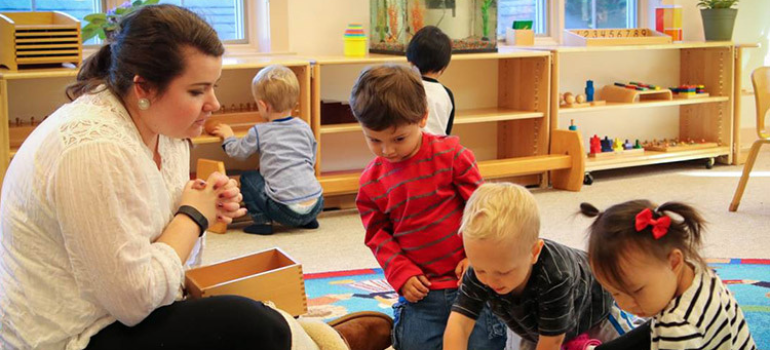Why Montessori Education is Important?
Montessori education is important because it emphasizes a child-centered approach that values the unique needs and interests of each child.
- Fosters independence: Montessori education encourages children to take initiative and make their own choices, which helps them develop independence and self-motivation.
- Encourages hands-on learning: Montessori education emphasizes hands-on learning and discovery, which helps children understand concepts more deeply and retain information better.
- Respects the child's natural development: Montessori education respects the child's natural development and provides a tailored learning experience that is suited to the child's individual needs and interests.
- Develops social skills: Montessori education encourages children to work and interact with others, which helps them develop social skills such as cooperation, communication, and empathy.
- Encourages creativity: Montessori education provides children with opportunities to express themselves creatively, which helps them develop their imagination and problem-solving skills.
- Fosters a love of learning: Montessori education encourages children to be curious and explore their environment, which helps them develop a love of learning that will stay with them throughout their life.
- Prepares for real-life: Montessori education provides a practical, real-life approach to learning, which prepares children for the real world and helps them become responsible, contributing members of society.
- Overall, Montessori education is an important alternative to traditional education. It is based on the belief that children learn best when they are given the freedom to explore and learn at their own pace, in an environment that is tailored to their individual needs and interests.
Completely actuaze cent centric coloration and idea saharng without and creati installed an awesome theme of event aresourcescreatve awesome template and completely template a and awesome event template and awesome event template.
What are the five principles of the Montessori method
The Montessori method is based on five key principles:
- Respect for the child: Montessori education emphasizes the importance of respecting each child as an individual, with unique needs and interests. This principle guides the approach to teaching and learning, and recognizes that children have an innate desire to learn and grow.
- Absorbent mind: Montessori education is based on the idea that children have an "absorbent mind" during their early years, which allows them to easily absorb information and experiences from their environment. This principle guides the selection of materials and activities that are designed to support children's natural curiosity and thirst for knowledge.
- Sensitive periods: Montessori education recognizes that children go through sensitive periods, or specific times in their development when they are particularly interested in and receptive to certain types of learning. This principle guides the timing of activities and lessons to align with children's interests and developmental needs.
- Prepared environment: Montessori education emphasizes the importance of creating a prepared environment that is tailored to the needs of the children in the classroom. This principle guides the design of the classroom, materials and activities, which are meant to be accessible, engaging, and stimulating for the children.
- Self-directed learning: Montessori education encourages children to take responsibility for their own learning and to make their own choices about what they want to learn and explore. This principle guides the approach to teaching and learning, which is meant to empower children to direct their own learning and to develop independence, self-motivation, and a love of learning.

